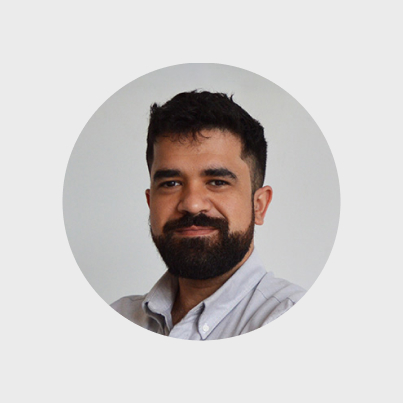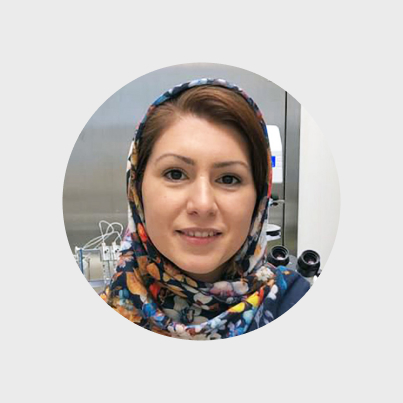Biomedical Engineering Graduate Degree Program
What makes this program different?
With mentorship from experienced faculty, in-hospital training opportunities, and resources to expand independent research goals, the biomedical program equips graduate students to design novel tools for medical diagnostics, treatment, and prognostication.
Degree
PhD, MASc, MEng
Program
Biomedical
Department
Electrical, Computer, and Biomedical Engineering
Fee range
Domestic $9,626.06 - $11,194.34
Options
1 or 2 yrs, FT & PT, 3 specializations
Research & professional development options
Pursue breakthrough research through our PhD or MASc (Master of Applied Science) programs, or elevate your understanding of biomedical engineering through our course-based MEng option.
Work & research with leading companies and clinicians
Through our innovative Biomedical Zone and the industry-leading iBEST Institute (external link) , positioned at St. Michael’s Hospital, our graduate students and faculty collaborate closely with clinicians to advance the future of medicine.
Learn from world-renowned faculty researchers & experts
Learn from Canada Research Chairs, lab founders, and leading researchers across disciplines like Dr. Dafna Sussman who is creating novel imaging and diagnostic tools for maternal and fetal disorders.
Fund your studies and business ideas
Explore scholarships, awards, and more opportunities to finance your studies. If you have an innovative idea or startup, you may also qualify for Esch Award funding, which supports eligible ventures from the ideation to launch stages.

Explore your journey
PhD
Ideal for applicants with a master’s degree in science or engineering who want to pursue a career in academia or a professional research or management career in industry,
MASc
Ideal for applicants with an undergraduate degree in science or engineering, who want to pursue a specific research area or idea.
MEng
Ideal for applicants with an undergraduate degree in science or engineering who want to elevate their credentials and increase their job market opportunities.
| PHD | MASc | MEng |
|---|---|---|
Admission requirements:
|
Admission requirements:
|
Admission requirements:
|
Application requirements:
A resume/CV, transcripts, 2 letters of recommendation, English Language Proficiency test (if applicable), and a statement of interest. |
Application requirements:
A resume/CV, transcripts, 2 letters of recommendation, English Language Proficiency test (if applicable), and a statement of interest. |
Application requirements:
A resume/CV, transcripts, 2 letters of recommendation, English Language Proficiency test (if applicable), and a statement of interest. |
Statement of interest: 500-1000 words outlining:
|
Statement of interest: 500-1000 words outlining:
|
Statement of interest: 500-1000 words outlining:
|

"Our interdisciplinary Biomedical Engineering Graduate Program at Toronto Metropolitan University integrates expertise from engineering, biology, medicine, and data science to address the most pressing challenges in healthcare. Through hands-on experience and collaborative, cutting-edge research, our program empowers our students to transform healthcare and improve lives. Join us in shaping the future of biomedical engineering."
Courses offered in each of the three focus areas explore a range of topics from advances in biomaterials, robotics and mechanics, to nano manufacturing and medical physics. Whether you’re in a research-intensive program or pursuing professional development, the selection of available courses is designed to deepen technical engineering skills and foster real-life applications of ambitious and creative concepts and solutions.
Visit the graduate calendar for full course descriptions and see which courses are offered this academic year.
| PhD | MASc | MEng |
|---|---|---|
|
|
|
Grade requirements: If a course mark is less than B- (2.67/4.33 or 70%) for both MEng and MASC, and less than B (3.00/4.33 or 73%) for PhD, you must repeat the course or alternate with another. Failure to maintain an acceptable academic standing could result in your being asked to withdraw from the program. Failure in more than one course will be considered grounds for dismissal.
Required courses:
The following foundational courses are program requirements, as determined by degree. All courses are one semester and equal to one course credit, unless otherwise stated.
Course |
Degree |
Term |
|---|---|---|
BE8001 Foundations of Biomedical Engineering |
MASc/MEng/PhD |
Fall or Winter |
BE8002 Seminars in Biomedical Engineering 1 2 |
MASc/PhD |
Fall & Winter |
BP8114 Anatomy and Physiology for Medical Physics |
MASc/MEng/PhD |
Winter |
1 MASc students must give one seminar presentation toward the end of their thesis. PhD students must give one presentation before their candidacy exam, as well as one presentation toward the end of their dissertation. This credit is awarded on a pass/fail basis. 2 Enrolment is restricted to MASc and PhD students, though MEng students can attend seminars without enrolling. |
||
Electives
There are 26 electives from related disciplines available to biomedical engineering students and admission to these classes do not require submission of a course substitution form. Students will be instructed to submit a Google Form instead. For a full list of electives available please visit the Currently-Offered Courses page.

Enrich your learning through research, labs & community
With each field of study designed to encourage and guide your existing passions and curiosity, our programs offer all the tools, facilities, mentors and access to industry opportunities you need.
The field of biomaterials utilizes natural and synthetic materials, in conjunction with biomedical tools and devices, for the repair of diseased or damaged tissue and organs. Orthopedic implants, tissue engineering scaffolds, lab-on-a-chip and cell encapsulation devices have all emerged from this area of study. The biomaterials research group utilizes laboratory facilities in the Department of Chemical Engineering, the Department of Mechanical, Industrial, and Mechatronics Engineering, and the Institute of Biomedical Sciences and Technology (iBEST) (external link) located at St. Michael’s Hospital.
Principal Investigators:
The field of biomechanics specializes in the development of medical implants, tissue and cell mechanics and medical robotics. These include orthopedic implants, surgical robots and bio-MEMS. The biomechanics research group utilizes laboratory facilities in the Department of Chemical Engineering , the Department of Mechanical, Industrial, and Mechatronics Engineering , and the Institute of Biomedical Sciences and Technology (iBEST) (external link) located at St. Michael’s Hospital.
Principal Investigators:
The field of biomedical signals and systems advances the development of medical imaging technologies and biomedical applications of sensors and signal processing. Examples include biophotonics, cardiac electrophysiology and computer-aided diagnosis. This group utilizes laboratory facilities in the Department of Electrical & Computer Engineering, the Department of Mechanical, Industrial, and Mechatronics Engineering , the University Health Network, Sunnybrook Health Sciences Centre, and the Institute of Biomedical Sciences and Technology (iBEST) (external link) located at St. Michael’s Hospital.
Principal Investigators:
TMU is home to over 130 state-of-the art engineering and architecture-focused labs and facilities. Whether you’re interested in autonomous vehicles that act as personal valets or robotic arms that help improve the accuracy of risky surgery, ground-breaking research is happening in our 21 dedicated biomedical engineering labs.

Whether you’re looking to join a student group, advocate for your peers in student government, challenge yourself and others at our graduate symposium, or just looking for support, we encourage you to make the best of your experience at TMU.
What careers do biomedical engineering graduates pursue?
Career possibilities
With skills that give you a competitive advantage in the healthcare industry, TMU biomedical engineering graduates are driving innovation and solving medicine’s most pressing issues. Our graduates pursue successful careers at hospitals, medical equipment manufacturers, pharmaceutical companies, biomedical startups, and more as management consultants, biomaterials developers, medical technologists, clinical engineers, researchers, technicians, data scientists, AI developers, and more.
Possible employers
- University Health Network
- GE Healthcare
- Johnson & Johnson
- Tesla
- National Research Council
- Trillium Health Partners
- The Hospital for Sick Children
- Canadian Armed Forces
- + more

ANDREW MARQUES
Application Scientist
“Toronto Metropolitan University is a fantastic environment – for not only its incredible facilities and professors but also its research diversity. Biomedical engineering is highly multidisciplinary, and Toronto Metropolitan University is home to experts across multiple fields.”
Biomedical Engineering, (BEng) ’16, (MASc) ’19

Rokshana Stephny Geread
Data Scientist – BioSymetrics
“Toronto Metropolitan University’s industry partnerships, including St. Michael’s Hospital, have allowed me to develop connections within the medical industry and to work with clinicians and physicians to solve real-world medical issues.”
Biomedical Engineering (MASc) ’21

Maryam Navi
Postdoctoral Scholar – Standford University
“The lab environment at iBEST is very conducive to interdisciplinary research. I could consult experts in areas where I lacked knowledge, and any equipment that I needed was readily available. It allowed my research to progress quickly and easily.”
Biomedical Engineering (PhD) ʼ20

